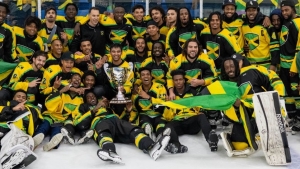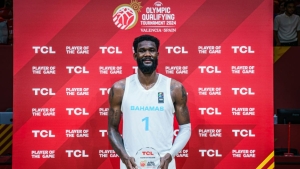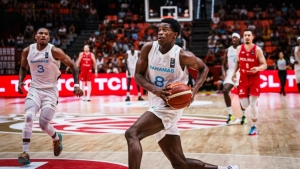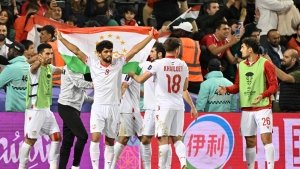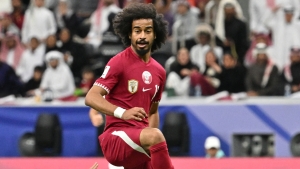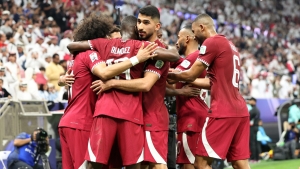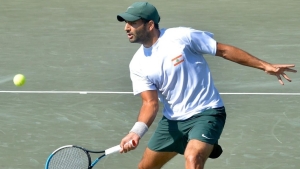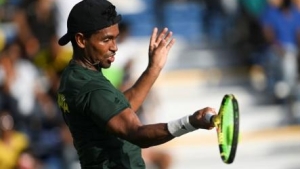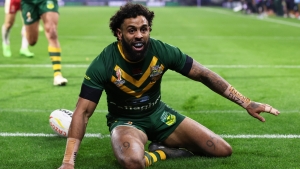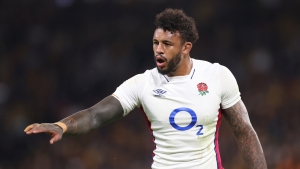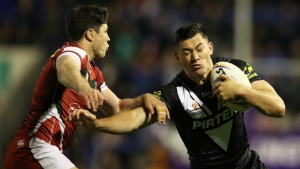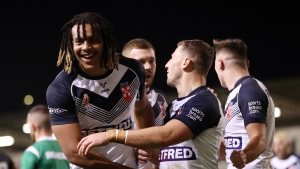Five years on from its last iteration - and a year after it was originally set to take place - the 2021 Rugby League World Cup kicks off this weekend when England face Samoa at St James' Park in Newcastle.
Shaun Wane's hosts will be one of 16 sides jockeying to be crowned the best national team on the planet, alongside holders Australia, world number one New Zealand and a host of other countries.
Set to run for just over a month, through to the final at Old Trafford on November 19, there are already plenty of narratives for what is shaping up to be one of the most enthralling tournaments the sport has ever seen.
With that in mind, Stats Perform is here to run down who will be gunning for the prize, who is likely to fall by the wayside - and who just might capture hearts and minds along the way.
The usual suspects
There have only been three nations who have ever laid their hands on the Paul Barriere Trophy - and you can expect the two of them in the competition this year to be in the mix once again.
Australia have won this tournament a record 11 times, and despite a dearth of international rugby for Mal Meninga's side since they last hoisted it aloft, the Kangaroos firmly remain the side to beat.
In Michael Maguire's New Zealand, they will likely face a familiar foe before the final.
Australia and New Zealand have been drawn in Group B and C respectively, meaning there is no path for them to meet in the showpiece game, despite being the two most highly fancied teams with the bookmakers coming into the tournament.
The Kiwis soundly underperformed in 2017, knocked out in the quarter-finals; here, they'll be desperate to make amends.
Fifty years of hurt
England have never won the Rugby League World Cup - or rather, as a solo nation, having been part of the Great Britain side that last won the Paul Barriere Trophy in 1972.
Preparations have been less than ideal for the hosts too, with a host of key faces - including Super League Grand Final-winning St Helens trio Jonny Lomax, Mark Percival and Alex Walmsley, plus Wigan Warriors back-rower Liam Farrell - all struck off from consideration through injury.
But that has opened the door for a slew of surprises, with Salford duo Marc Sneyd and Andy Ackers handed maiden call-ups alongside Australian-born loose-forward Victor Radley.
Throw in NRL young guns Dom Young and Herbie Farnworth, and there's plenty to be excited for. Could they upset the odds and end a half-century wait for glory on home turf?
The upstart crowd
Last time a World Cup took place, Samoa endured a dismal tournament, with a draw against a gutsy Scotland side their only positive mark of the competition.
Now, it is a different story - Matt Parish's side are stuffed to the gills with NRL superstars, including six of Penrith Panthers' Grand Final-winning squad.
They'll hope to follow in the footsteps of Tonga, who caused a shock five years ago with a remarkable run to the final four, where they then ran England close.
Both teams have taken maximum advantage of rugby league's chop-and-change eligibility rules, and are now credible dark horse contenders.
Perennial semi-finalists, Fiji - who knocked out New Zealand last time around - look as if they will be considerably off the pace of their Pacific rivals, but the Bati's roaring spirit means they are unlikely to go down without a fight.
Throw in Papua New Guinea and the Cook Islands, and the Southern Hemisphere will have plenty to boast about.
The rest of the pack
It won't be a lock-out from below the equator if England and the other nations in the tournament have their say.
Wales - coached by the eternal John Kear - Scotland and Ireland ensure a Home Nations lockout for the United Kingdom, while France and Italy bring continental flavour from Europe.
Lebanon, meanwhile, are led by a familiar face from across the rugby code divide - ex-Wallabies supremo Michael Cheika, who will juggle this tournament with his role in charge of the Argentina union national team.
Then there is the two teams making their World Cup debut - Greece and Jamaica.
The former hail from a nation where rugby league has fought to even be recognised as a sport, while the latter stunned the USA to achieve a tournament bow.
While neither team is expected to make a long run, they are sure to earn their fans over the coming weeks.























